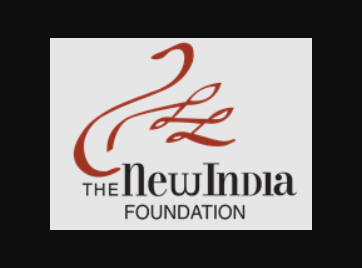Wednesday, July 3rd, 2024: The New India Foundation (NIF) is pleased to announce the winners of Round 2 of the NIF Translation Fellowships in the 2024-25 cycle. Aimed at encouraging translations from important non-fiction works across 10 Indian languages (Assamese, Bangla, Gujarati, Hindi, Kannada, Marathi, Malayalam, Odia, Tamil, Urdu) to English, the NIF Translation Fellowships showcase the country’s rich history of knowledge texts across diverse literary traditions.
Awarded for a period of 6 months with a stipend of 6 lakhs to each recipient, the Translation Fellowships bring historical Indian-language texts published after 1850 towards English publication. Editorial and financial support are also offered alongside the opportunity to work with the NIF’s Trustees, and the Language Expert Committee consisting of distinguished bilingual scholars and writers. The NIF aims to expand upon its mission of supporting knowledge about the history of contemporary India through the books resulting from the Translations, which supplement the 33 titles published over the past two decades in the NIF Book Fellowship programme. NIF Book and NIF Translation Fellowships alternate each year, with applications invited annually between August to December.
Speaking on Round 2 of the NIF Translation Fellowships, Srinath Raghavan, Chair of the NIF Fellowships, said: “The idea of the Translation Fellowships is to translate from Indian languages key works of non-fiction about India into English, thus bringing these important texts to a much wider readership. In this round of Translation Fellowships, we had applications to translate a range of fascinating texts, all of which testify to the diversity of the intellectual resources that are available in this country and which are yet to come into broader circulation.”
The full list of Awardees for Round 2 of the Translation Fellowships, arranged in alphabetical order of original language, is as follows:
GUJARATI: Prabhudas Gandhi’s The Dawn of Life (Jivan Nu Parodh) translated by Hemang Ashwinkumar, is an account of the Gandhi family’s life in South Africa seen from the eyes of young Prabhudas Gandhi (1901-95), Mahatma Gandhi’s grandnephew, who had migrated to South Africa in 1905. In elaborate and precise ways, this memoir curates a precious archive of all that went into the making of the man who went on to organize a diverse, and mutually averse, subcontinent for swaraj in the spirit of ahimsa.
HINDI: Ramdhari Singh Dinkar’s Sanskriti Ke Chaar Adhyaya (Four Chapters of Culture) translated by Achyut Chetan, is a history of Indian culture written in post-Independence India. The book traces the roots of the syncretism and pluralism of Indian culture in four chapters, each conceptualized as the account of a revolution and a synthesis. It offers unique perspectives on the contribution of several traditions—religious, literary, philosophical, aesthetic, and linguistic—to the making of a pluralist, composite, and democratic Indian culture which is inevitably dynamic.
TAMIL: Singaravelar’s Swaraj to Whom? (Swarajyam Yaarukku?) translated by Vilasini Ramani, is a compilation of writings by Malayapuram Singaravelar (1860-1946), an intellectual and political activist often hailed as the first communist of South India. Published between 1931-1934, these writings are a critical reflection on Swaraj, the idea of self-rule propagated by Indian nationalists; to Singaravelar, Swaraj would be incomplete without foregrounding questions of class and caste in arguing for an anti-colonial movement that ingrains a vision for creating an egalitarian society.
URDU: Qazi Abdul Ghaffar’s Portrait of the West (Naqsh e Farang) translated by Matthew Reeck, is a travelogue narrating the author’s trip as Secretary of the Khilafat Movement’s 1922 delegation to Britain. It is a critical text of literary and historical importance which documents an oft-forgotten moment of the Indian Independence movement, reversing the Western gaze onto Europe in surprisingly humorous ways in undercutting colonial-modern Western claims for humanist values and universal knowledge.

